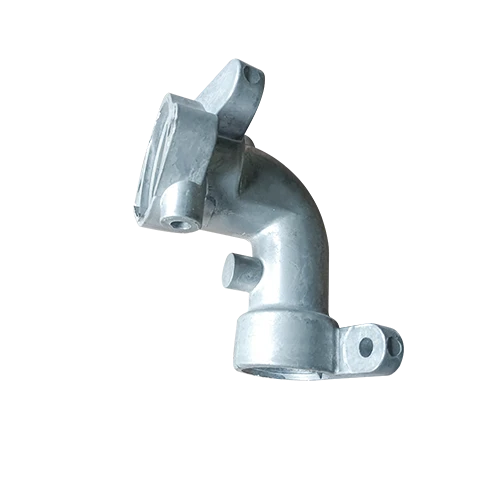Mobile:+86-311-808-126-83
Email:info@ydcastings.com
Advantages and Applications of Stainless Steel Die Casting in Modern Manufacturing
The Advantages and Applications of Stainless Steel Die Casting
Stainless steel die casting is a manufacturing process that transforms molten stainless steel into intricate shapes and components through the use of metal molds or dies. This advanced technique is proliferating in various industries due to its unique advantages, including durability, corrosion resistance, and dimensional accuracy. As industries embrace innovative materials and manufacturing methods, stainless steel die casting has emerged as a vital option for producing high-quality components.
One of the primary benefits of stainless steel in the die casting process is its exceptional corrosion resistance. Stainless steel alloys, notably those with high chromium content, form a protective layer that helps prevent rust and oxidation. This characteristic makes stainless steel die-cast parts ideal for harsh environments, such as marine applications, chemical processing, and food production, where exposure to moisture and corrosive substances is common. By utilizing stainless steel, manufacturers can create components that maintain their integrity and appearance over time, reducing the need for frequent replacements and maintenance.
Another significant advantage of stainless steel die casting is the strength and durability of the final products. Stainless steel is known for its mechanical strength, which allows die-cast components to withstand high levels of stress and strain. This makes them suitable for applications in various sectors, including automotive, aerospace, and construction, where reliability and performance are crucial. By incorporating stainless steel die casting into their designs, engineers can create intricate and robust parts that meet rigorous industry standards while minimizing weight and maximizing functionality.
Moreover, the die casting process itself offers precision and efficiency that are hard to match with other manufacturing techniques. The use of precision-engineered dies ensures that every component produced is consistent in dimension and quality. This means that manufacturers can achieve tight tolerances, which is especially important when parts need to fit together seamlessly in complex assemblies. The rapid production capabilities of the die casting process also allow for reduced lead times, enabling companies to respond quickly to market demands and engineering changes.
stainless steel die casting

In addition to its mechanical properties and processing efficiency, stainless steel die casting supports sustainability in manufacturing. Stainless steel is fully recyclable and retains its properties even after recycling, promoting a circular economy. By choosing die casting in stainless steel, manufacturers not only benefit from the material's performance characteristics but also contribute to environmentally friendly practices. This aspect is increasingly important for businesses aimed at minimizing their ecological impact and adhering to stricter regulatory requirements.
Stainless steel die casting finds applications in various industries. In the automotive sector, components such as engine parts, brackets, and housings are fabricated to enhance vehicle performance. The aerospace industry utilizes stainless steel die-cast parts in critical applications, including structural components and fasteners, where safety and reliability are paramount. Additionally, in the consumer goods sector, stainless steel parts are featured in appliances, fixtures, and tools, valued for both their aesthetic appeal and functional endurance.
As technology continues to advance, the techniques and capabilities of stainless steel die casting are expected to evolve further. Innovations in alloy composition, die design, and manufacturing processes will likely lead to even more efficient and cost-effective solutions. With its versatile applications and numerous advantages, stainless steel die casting is poised to play an integral role in the future of manufacturing, addressing the increasingly complex challenges faced by various industries.
In conclusion, the flexibility, durability, and resistance to environmental challenges make stainless steel die casting a crucial process in modern manufacturing. As industries look for ways to enhance product performance while maintaining sustainability, stainless steel die casting stands out as an efficient and reliable method for producing high-quality components that meet the demands of today's market.
-
Understanding Metal Casting TechniquesNewsApr.02,2025
-
Understanding Exhaust Manifolds for Enhanced Engine PerformanceNewsApr.02,2025
-
The World of Metal FabricationNewsApr.02,2025
-
Key Components for Pump and Turbo EfficiencyNewsApr.02,2025
-
Essential Tools for Automotive Maintenance and RepairNewsApr.02,2025
-
Durable Valve Components for Effective Water ManagementNewsApr.02,2025











